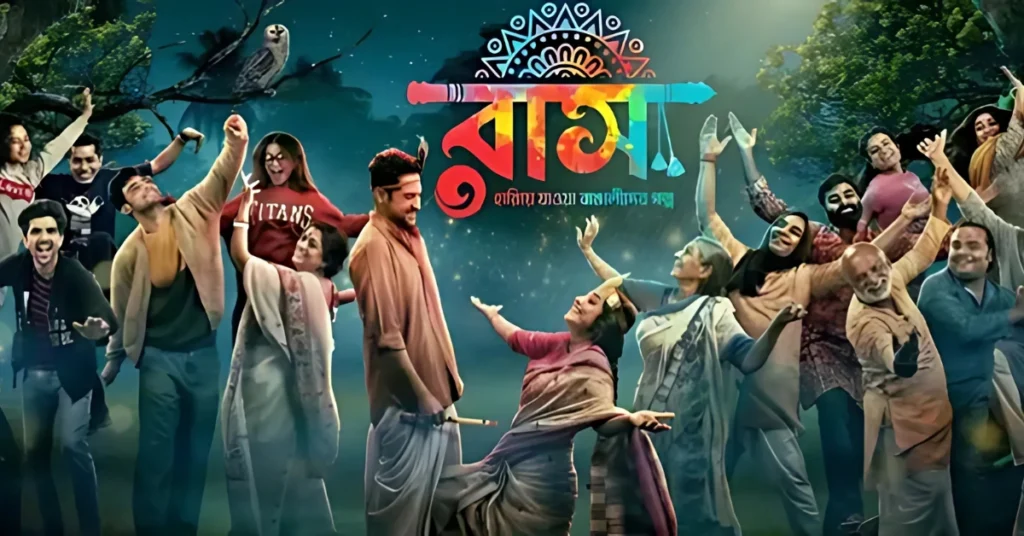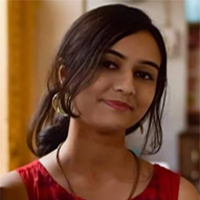⭐ Rating: 4.5/5
A must-watch for anyone who believes in strength with softness, and tradition with thought.
In an age where urban detachment has made cultural roots seem obsolete, Raas, directed by Tathagata Mukherjee, arrives like a gentle reminder that tradition and progress can walk hand-in-hand. Set in the tranquil, slow-paced lanes of rural Bengal, Raas is not just a film – it is a celebration of values, of womanhood, and of thought-provoking introspection. It invites the viewer to pause, reflect, and reconnect with the essence of being.
At its heart, Raas revolves around a joint family, a structure that now feels almost antique in today’s fast-paced world. The story unfolds in the fictional village of Manikpur, where generations coexist, bound by blood, affection, and a festival – Raas Purnima. This setting becomes a metaphor for the vanishing warmth of shared lives and collective celebrations. Through this backdrop, the film subtly stirs a long-lost sentiment: the beauty of belonging.
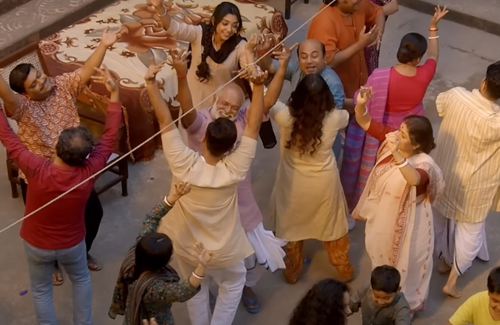
One of the film’s most striking achievements lies in its ability to juxtapose this rootedness with stunningly contemporary, ethical, and rational thoughts. In a society obsessed with speed and success, one particular dialogue from Raas pierces deep:
“In Manikpur, we didn’t choose mere survival. Even insects know how to survive. Here, we live.”
It’s a stunning reminder that life is not just about existence, but about presence. In a world where people are programmed like AI – racing to achieve, prove, outperform – Raas dares to ask: What’s the point of running if you’ve forgotten how to breathe? Through this single line, the film captures an entire philosophy – living over surviving, connection over ambition, meaning over mechanics.
But what makes Raas truly resonate are its women – bold, nuanced, and inspiring.
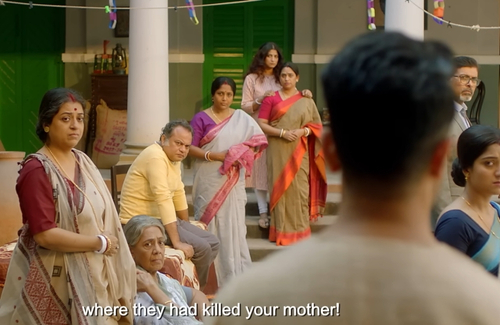
Didama – The Torchbearer of Wisdom and Modernity
Played with remarkable grace by Anasuya Majumder, Didama is the soul of Manikpur. An old widow, deeply rooted in her traditions, she could have easily been written as a conservative matriarch. But Raas surprises us. Didama is the perfect example of how age does not necessarily mean rigidity. She upholds her culture and values, yet her mind is refreshingly progressive.
When her granddaughter is slapped by her husband under the guise of marital rights, Didama doesn’t resort to silence. She rises in protest – fierce, unflinching, and absolutely clear in her stance: marriage does not give a man the right to abuse. She even voices strong opinions about a woman’s right to wear what she chooses – “If a girl feels right in a particular dress, she has every right to wear it. Period.”
Rai – The Unapologetic Changemaker:
Then there’s Rai, portrayed with quiet strength by Devlina Kumar. A character that embodies the spirit of service and self-belief, Rai is the beating heart of modern womanhood. A state civil service aspirant who chooses instead to stay back in her village to educate local children, Rai doesn’t see sacrifice in this choice – she sees purpose.
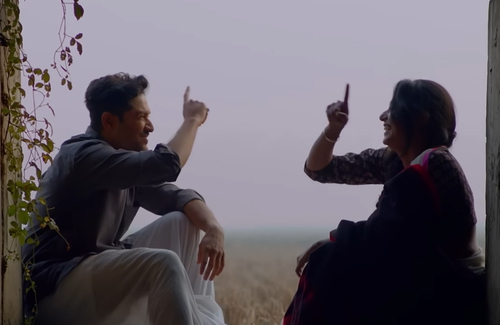
She lives by the powerful belief: “Charity begins at home.” Her sense of justice is determined. She stands tall against every form of injustice, and her decisions are always rooted in empathy, clarity, and resolve. Rai is not a woman who screams to be heard – she acts and lets her actions speak. She is the kind of woman every little girl should grow up watching on screen.
A Celebration of Character and Culture in Raas:
While every actor delivers a commendable performance, Raas is not a film driven by a single hero or heroine. It’s an ensemble of stories, all interwoven with care, each character contributing to the emotional and moral landscape of the film. The supporting cast – including Anirban Chakrabarti, Shankar Debnath, Arna Mukhopadhyay, Ranojoy, Parijat Chaudhuri, Debasish, Sudip Mukherjee, Debaprasad Halder, Apratim Chatterjee and others adds remarkable depth and authenticity, making the world of Manikpur feel real and rooted.
Also Read: Astitwa: Ek Roop Kai Pehchaan” Celebrates the Multifaceted Essence of Womanhood in Kolkata
The cinematography gently captures the slowness of rural life, while the screenplay doesn’t rush – it flows, much like life in Manikpur. The Raas festival itself, full of color, devotion, and community spirit, is portrayed not just as an event, but as a symbol – a ritual that connects generations, that holds space for both memory and movement.
Raas is not loud, it doesn’t try to dazzle with drama. It moves with softness, but it leaves a strong impact. It dares to tell us that even in a small village, in the lives of ordinary people, there lie extraordinary truths. And in doing so, it restores dignity to relationships, strength to women, and value to values.
For women, for families, and for anyone who’s forgotten what it means to truly live – Raas is more than a film. It is a moment of stillness we all need.


